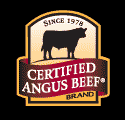Control Liver Flukes
Don't let liver flukes take a bite out of your bottom line.
In today's market, every competitive edge makes a difference to a producer's bottom line. That's why it is so important to control potentially harmful parasites in beef cattle and dairy heifers.
While all parasites pose a threat to profitability, liver fluke infestations have been identified as one of the top 10 beef quality issues.1 Although they were traditionally prevalent only in Gulf and Pacific Coast areas, liver flukes are now found in 26 states, largely due to the movement of both cattle and hay across state lines.2 Liver flukes are microscopic creatures present on vegetation, and are ingested by grazing cattle. Once ingested, the flukes can migrate from the intestine to the liver, potentially causing hemorrhage or blood loss.1
In a National Beef Quality Audit conducted by Colorado State University, Oklahoma State University and Texas A&M University, 24.1% of U.S. cows and bulls suffered from liver fluke infestation at slaughter,1 leading to the condemnation of those livers and, ultimately, significant financial loss. In Florida, for example, liver flukes are estimated to cost the beef industry $10 million each year.3 Specific estimates of financial impact to the entire industry are difficult to calculate. However, another report indicates that, overall, inadequate parasite control programs can cost producers as much as $200 per head each grazing season.4
In addition to the direct damage to the liver, there are hidden costs. Liver flukes can also lead to decreased weight in weaning calves and slower growth and reproductive development of heifers.3
In the dairy industry, liver flukes can also take a toll on the herd, as they can cause as much as a 10% decrease in milk production.3 Another challenge that can result from liver flukes is an infected animal's increased susceptibility to other diseases.5 "If cattle have parasites, health and development problems can be compounded," says Joe Dedrickson, director, Field Veterinary Services, Merial. "When there is liver damage, the immune system is also compromised, diminishing an animal's ability to handle illness, medications or vaccines. Ultimately, it results in producers sacrificing profits."
The best way to help prevent liver flukes from affecting profitability is to maintain a sound parasite management program. Merial's Ivomec® Plus (ivermectin/clorsulon) is one tool producers can use.
"Parasitism is something that can be managed," says Dedrickson, who recommends producers work closely with their veterinarians to establish a complete parasite control program that includes control of liver flukes.
"Not all products kill liver flukes, so producers need to be sure they are carefully checking labels and consulting with their veterinarians," he says. "In today's economy, it is imperative producers have all the right tools available to keep their herds at optimum health."
IMPORTANT SAFETY INFORMATION: Do not treat cattle within 49 days of slaughter. Do not use in dairy cattle of breeding age or in veal calves. Do not use in other animal species not on the label as severe adverse reactions, including fatalities in dogs, may result.
1McClanahan SL, Weddle-Schott L. Liver flukes in beef cattle. University of Minnesota Extension website. Available at: http://www.extension.umn.edu/beef/components/releases/
08-17-05-Mcclanahan.htm. Accessed Sept. 13, 2011.
2Data on file at Merial.
3Irsik MB, Courtney C, Richey ED. Liver fluke control in beef cattle. University of Florida Extension website. Available at: http://edis.ifas.ufl.edu/vm089. Accessed Sept. 13, 2011.
4Arseneau J. Parasite Control. Beef Health Management Course. University of Minnesota Extension Service. Available at: http://www.extension.umn.edu/county/pipestone/images/lesson4h.pdf. Accessed Sept. 13, 2011.
5Preventable Losses Due to Gastro-Intestinal Parasites. Available at: www.midamericaagresearch.net/documents/. Accessed Sept. 13, 2011.
®IVOMEC is a registered trademark of Merial. ©2011 Merial Limited, Duluth, GA. All rights reserved. RUMIEIP1103 (10/11)
[Click here to go to the top of the page.]












